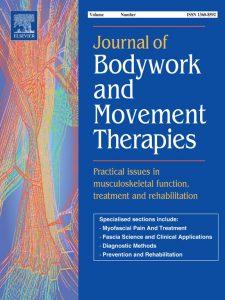Publications

Effect of Cold Compression and Ice Therapy on Muscle Recovery After Plyometric Exercise: A Randomized Crossover Trial
Authors: Robert Trybulski 1, 2, Jaroslaw Muracki 3, Monira I. Aldhahi 4, Ahmet Kurtoglu 5, Tomasz Halski 6
Affiliations:
- Medical Department, Wojciech Korfanty Upper Silesian Academy, 40-659 Katowice, Poland
- Provita Medical Center, Zory, Poland
- Institute of Physical Culture Sciences, Department of Physical Culture and Health, University of Szczecin, 70-453 Szczecin, Poland
- Department of Rehabilitation Sciences, College of Health and Rehabilitation Sciences, Princess Nourah bint Abdulrahman University, P.O. Box 84428, Riyadh 11671, Saudi Arabia
- Department of Coaching Education, Bandırma Onyedi Eylül University, 10200, Balikesir, Turkiye
- Faculty of Physical Education and Physiotherapy, Opole University of Technology, 46-020 Opole, Poland
Journal: Journal of Bodywork and Movement Therapies - October 2025 (DOI: 10.1016/j.jbmt.2025.10.021)
-
Field & Applications:
- Sport
- Treatment evaluation
- Warm-up / Recovery
- Fatigue / Overtraining
- Muscle development / Performance
Objectives: This study aimed to assess the effects of cold compression therapy (Game Ready®), ice, and placebo on quadriceps recovery in amateur football players following plyometric exercise, focusing on stiffness, reactive strength index (RSI), pain, and muscle damage markers.
Design: Randomized, controlled, crossover trial.
Setting: University biomechanics laboratory.
Participants: Forty-five healthy male amateur football players.
Main Outcome Measures: Muscle stiffness (N/m), RSI, pressure pain threshold (PPT), perfusion (perfusion units, PU), creatine kinase (CK), lactate dehydrogenase (LDH), and total quality recovery (TQR), assessed at pre, post, 24 h, 48 h, and 72 h after plyometric exercise.
Results: Cold compression significantly reduced muscle stiffness (p < 0.01), CK and LDH levels (p < 0.05), and improved RSI (p < 0.01) and PU (p < 0.01) at 48 h and 72 h, compared to placebo. No significant differences were found between groups in PPT.
Conclusions: Cold compression therapy was more effective than ice or placebo in promoting muscle recovery after plyometric exercise by enhancing perfusion, reducing muscle stiffness and biochemical damage, and improving neuromuscular performance and perceived recovery.
Keywords: sport regeneration, Game Ready, muscle stiffness, DOMS, microcirculation
The findings of this study indicate that the application of combined cold and compression therapy (Game Ready®) following plyometric exercise significantly accelerates quadriceps muscle recovery in amateur football players. This was reflected in reduced muscle stiffness, improved RSI, and lower CK and LDH levels. Notably, these effects were closely associated with an enhanced microcirculatory response, suggesting that restoring adequate tissue perfusion may play a central role in supporting postexercise recovery. Concurrent improvements in subjective recovery perception (TQR) further underscore the physiological and psychological benefits of this intervention.
From a practical standpoint, these results strongly support the implementation of cryocompression protocols as part of football recovery strategies. Regular use of such interventions, particularly after intensive training sessions or matches, may shorten recovery time, reduce the risk of muscle overload injuries, and improve player readiness for subsequent training and competition. This is especially relevant during congested fixture periods, when recovery efficiency becomes critical for maintaining performance and preventing injuries.
Coaching and medical staff are advised to integrate cold-compression therapy into comprehensive fatigue management plans within training microcycles. When combined with subjective monitoring tools (e.g., TQR) and objective load assessment, this approach can enhance individualized recovery strategies and contribute to injury prevention in athletes. Given the eccentric and high-intensity nature of football, optimizing postexercise recovery may be a key determinant of both performance and athlete availability.


